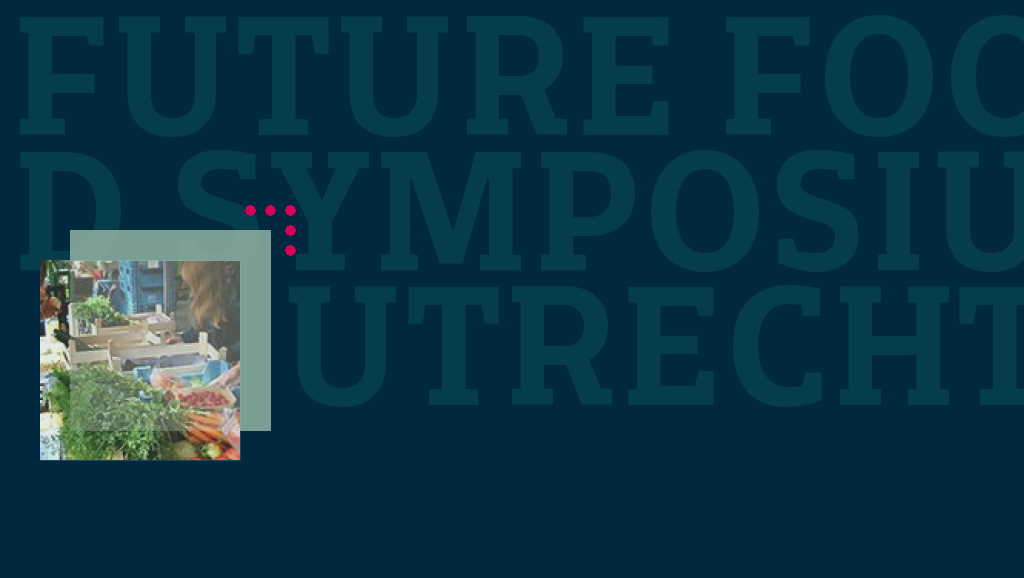February 17 saw the Groentetas group of Utrecht University organize the Future Food Symposium, with long time Foundation collaborator Cristina Grasseni as opening speaker. In this short report we offer an outline of the event.
Groentetas means ‘vegetable bag’ in Dutch, and in this case the name used by an organization run by students within the University of Utrecht, Netherlands. It was founded in 1994 and since then has sold vegetables and fruit to students and staff. The goods sold are all local and (mostly) organic, and the goal is to stimulate a more sustainable consumption amongst students and staff. It is a non-profit organisation, and they sell the vegetables for the same price they buy them from the farmers. The vegetables of the Groentetas come from the farmers collaboration called Local2Local.
The first Future Food Symposium brought together a host of interesting speakers, with Grasseni leading from the front with a talk on Italian alternative food provisioning networks.
Grasseni presented on her fieldwork on Italy’s “Solidarity Purchase Groups”, an example of collective food procurement organized by consumers. Readers may recall the publication of her book on the subject Beyond Alternative food Networks, a review of which is available here.
Grasseni’s speech was follwed by dinner provided by Taste Before You Waste. Taste Before You Waste. Taste Before You Waste Utrecht is a community project whose volunteers work on reducing food waste by redistributing good food to the community. Dinner was prepared from waste food collected throughout the city and there was plenty for everyone.
Kiki Haan followed dinner with a presentation entitled A New Citizenship Through Food Waste. Haan presented her Anthropology Master’s Thesis in which she developed her argument about new forms of citizenship through food waste. She argued that the meaning of food is two sided: on the one hand it has an instrumental value- we need food in order to survive; on the other hand food has a semantic value- it has the social power of binding people or highlighting differences. The author described how she found people are not only collecting food because it is a shame that good, edible food goes to waste, but also that many are fighting bigger phenomena such as social inequality, environmental problems and societal disagreements. The food waste fighters she met felt that these phenomena are connected to the high amount of food waste we produce. She concludes that through the act of fighting food waste, citizenship and its responsibilities are discussed and even reformed.
Níne de Jonge followed with a presentation on food networks in New Orleans. De Jonge described her field period in new orleans and her study of Foodways. Her interest was in meaning as ascribed to food and she asked the question of how food consumption relates to belonging, be that to a city or within a community, and whether food ritual can be seen as either socially binding or barrier making.
Caroline Zeevat followed with a fascinating talk about edible weeds, the history of modern vegetables and urban farming. Caroline reminded the audience that modern vegetables have once all have been “weeds”. She explained that modern weeds could be reintroduced into our diet since they need little fertilization and have high nutritional values. She described how she has been growing flowers and herbs for various restaurants and companies as a test to find out how much half a hectare of land yields per year. She also presented her latest project, a new (subtropical) plant lab in the former Tropicana swimming paradise in Rotterdam.
Freek Appels was the next to speak. Freek is a molecular microbiology PhD candidate working on the production of new materials from food waste, and he introduced his research on the production of new materials from fungus. He works within a project that involves Fabrizio Montalti of Officina Corpuscoli, who readers might know from previous posts. He gave an insight into the cooperation between scientists, designers, and artists in two University based projects, raising issues surrounding ther true biodegradability capacities of bio-plastics and arguing for the future of mycelium bacterial products as possible substitutions.
The evening was brought to a close by Paula Zwitser of BroodNodig, a start-up that is making mini-modular bread digesters. BroodNodig is a new startup with a solution for the problem of wasted bread. Last year they began developing a small scale modular bread digester, a system that transforms old bread into biogas through fermentation. The company aims to present a circular economy model solution to address this food waste issue, while helping to reduce CO2 emissions. Zwister described how the system works, and presented some startling facts about how much gas can be produced from relatively small amounts of waste bread. She went on to share their experiences as a young start-up and describe their cooperation with the Rotterdam city council in tackling the rat plague issue by taking waste bread off the streets.
This was an exceptionally well run and interesting event, that succeeded in bringing many aspects of food consumption together, and we wish the new Groentetas directorship the very best as they step in to continue the organization’s work and look forward to the next symposium. A short video of the event is available through the Groentetas website linked above, as are other videos demonstrating the organization as a whole, and photos of the event via the Foundation’s Flikr account.
(Photos also in our account in Flickr.)
————-
















